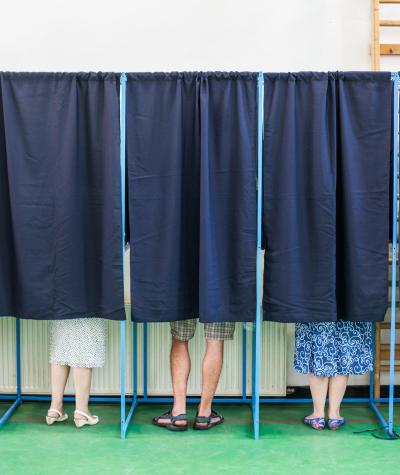Voters in the United States have the right to cast their ballots freely, safely and privately through a secret ballot.
The modern conception of a “secret ballot” originated in Australia and was initially adopted in the American electoral system during the 1888 presidential election. By allowing voters to keep their ballots secret, they could make their voices heard without the fear of coercion or intimidation.
Yet some state lawmakers in several states are considering proposals that would undermine the fundamental right to a secret ballot. In Arizona, for example, lawmakers have introduced legislation that seeks to publish voters’ ballots and personal information online during the middle of the post-election process, before election results are finalized.
Publishing detailed, precinct-level data showing voters’ identifying information, cast vote records and ballot images violates voters’ fundamental rights to ballot secrecy.
Bad actors may, correctly or not, attempt to connect the published information with identifying information on the voter list. And voters sometimes – albeit inadvertently – disclose personal identifying information on their ballot that would then be published online without any screening. The government has an obligation to protect citizens’ secret ballot rights, not facilitate their violation.
Voters’ federal and state rights to be free from intimidation will also be implicated. Posting voters’ detailed identifying information will feed existing door-to-door “canvasser” groups that have harassed and intimidated voters, especially voters of color, during recent election cycles.
Posting voter information and ballot images online in the middle of the post-election process will also provoke and prolong frivolous election contest litigation. As we saw both during and after the 2022 midterm elections, partisan politicians who want to manipulate the rules for their own political gain have misused election information and processes to cast doubt on the entire electoral system.
As part of these efforts, losing candidates have attempted to use election contest litigation to manufacture falsehoods about the results of a free and fair election. Ballot image proposals like what we’ve seen in Arizona will only add raw data to further fuel those baseless claims and force an already overtaxed judiciary to take more time to debunk them.
Inevitably, this kind of unwarranted chaos would logjam the election contest process, creating uncertainty and distrust among voters. Drawing out election contests also means that some states may miss the mandatory presidential certification deadline under the new Electoral Count Reform Act – which Arizona is already at risk of not meeting.
Notably, most states do not require the publication of voter information, voting records and ballot images at all. And none do so in the way being suggested in Arizona, which would be an extreme outlier if it adopts the legislature’s current proposals.
Voters’ privacy and safety, and the swift and efficient resolution of any post-election disputes, should be priorities for lawmakers. Proposals to appease election deniers under the mantra of transparency should be rejected. Rejecting bills that unmindfully broadcast identifying information and voter’s data during the middle of the post-election process is a necessary step to protect the right to a secret ballot.

